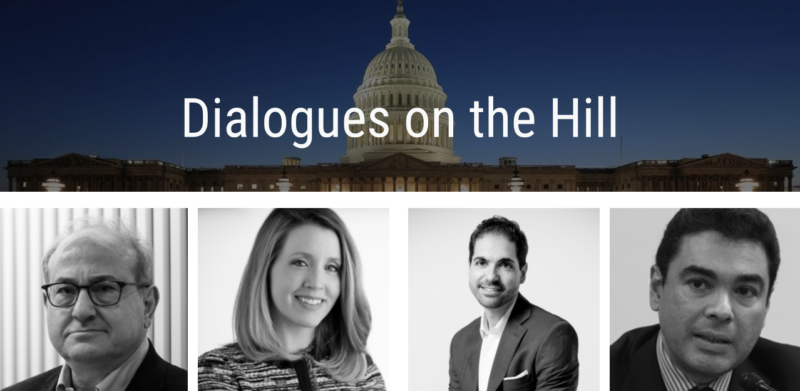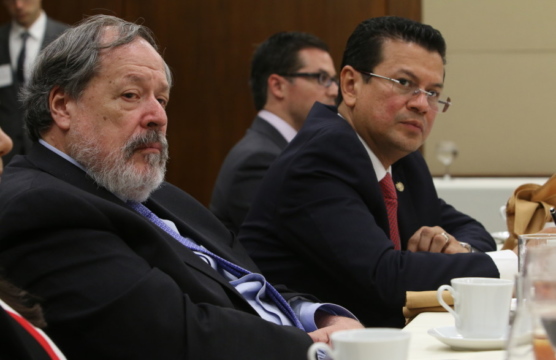Violence, Crime & Citizen Security in Central America & Mexico
Members of Congress met with policy experts and government officials to discuss violence and crime in the region.
On April 16, Dialogue experts briefed key congressional staff in both the House and Senate on Covid-19 and its impact on Latin America and the Caribbean (LAC). Speakers included Michael Camilleri, director of the Peter D. Bell Rule of Law Program; Manuel Orozco, director of the Migration, Development & Remittances Program; and Margaret Myers, director of the Asia & Latin America Program.
The virtual briefing was moderated by Michael Shifter, president of the Inter-American Dialogue. In his opening remarks, Shifter gave an overview of the potential economic, social, and health crises that may result in the region due to Covid-19. He also referenced the wave of mass demonstrations and social turbulence at the end of 2019, stating that deep-rooted issues of sharp inequality, corruption, and institutional weakness could be accelerated.
Camilleri discussed three main categories of human rights concerns related to the pandemic. First, the state capacity of the vast majority of LAC countries consists of weak public health infrastructure and low levels of investment, which results in a government’s limited ability to fulfill its citizens’ right to health resources. Second, Covid-19 and the subsequent government responses will have a dispersed impact on certain vulnerable segments of the population. Prisoners, detained migrants, and indigenous peoples, among others, are unable to social distance properly to mitigate the spread, and victims of gender violence may be more at-risk due to severe lockdown measures. Lastly, Camilleri noted that there have been disproportionate restrictions on civil liberties under the cover of a Covid-19 response, such as arbitrary arrests in El Salvador, severe limits on freedom of expression in Bolivia, and restricted access to information in Brazil. To conclude, he elaborated on the humanitarian crisis in Venezuela, referring to it as an “emergency within a pre-existing emergency.”
In addressing the economic situation of the region, Orozco noted that the loss of work in the informal economy will lead to a 2 percent loss of GDP for several countries, including Peru, Ecuador, and certain Central American and Caribbean nations. Due to the region’s reliance on the external sector and other limited sources, such as remittances, for economic growth, the pandemic has exacerbated an already fragile economy and labor situation. He forecasted a major decline in remittances and the living conditions for migrants in both the United States and Latin America. On migration, Orozco shared that the pandemic and potential global recession will likely result in less migration traffic from the Northern Triangle to the US border, which also occurred after the 2008 economic crisis.
Myers described several ways that China has played a role in the region during this time. She highlighted China’s use of “mask diplomacy” - countries such as Argentina, Paraguay, and Venezuela have recently obtained donations or sales of medical equipment and diagnostic services. Chinese diplomats are also trying to shape public discourse of China’s response to the virus. Myers stated these efforts have at times been met with considerable resistance. She then noted that because China-LAC economies are inextricably tied, the region’s own recovery largely depends on the nature and speed of China’s. Future Chinese engagement in the continent will also be shaped by China’s own economic stimulus and reforms. As the first country to encounter Covid-19, China is in a unique position to be producing vaccines and advising on treatments, but Myers shared that some countries in the region are reassessing their dependence on China and single markets for critical health or national security-related issues. However, there is a general sense in the region that China is managing the global coronavirus response, which will have long-term effects on the country's influence and its position as a global leader.
The briefing Q&A was private and off-the-record.
Members of Congress met with policy experts and government officials to discuss violence and crime in the region.
The outlook for the Northern Triangle is one of both optimism and apprehension.
China-Latin America expert Margaret Myers talks about her new book on how China is changing its approach across the continent.


